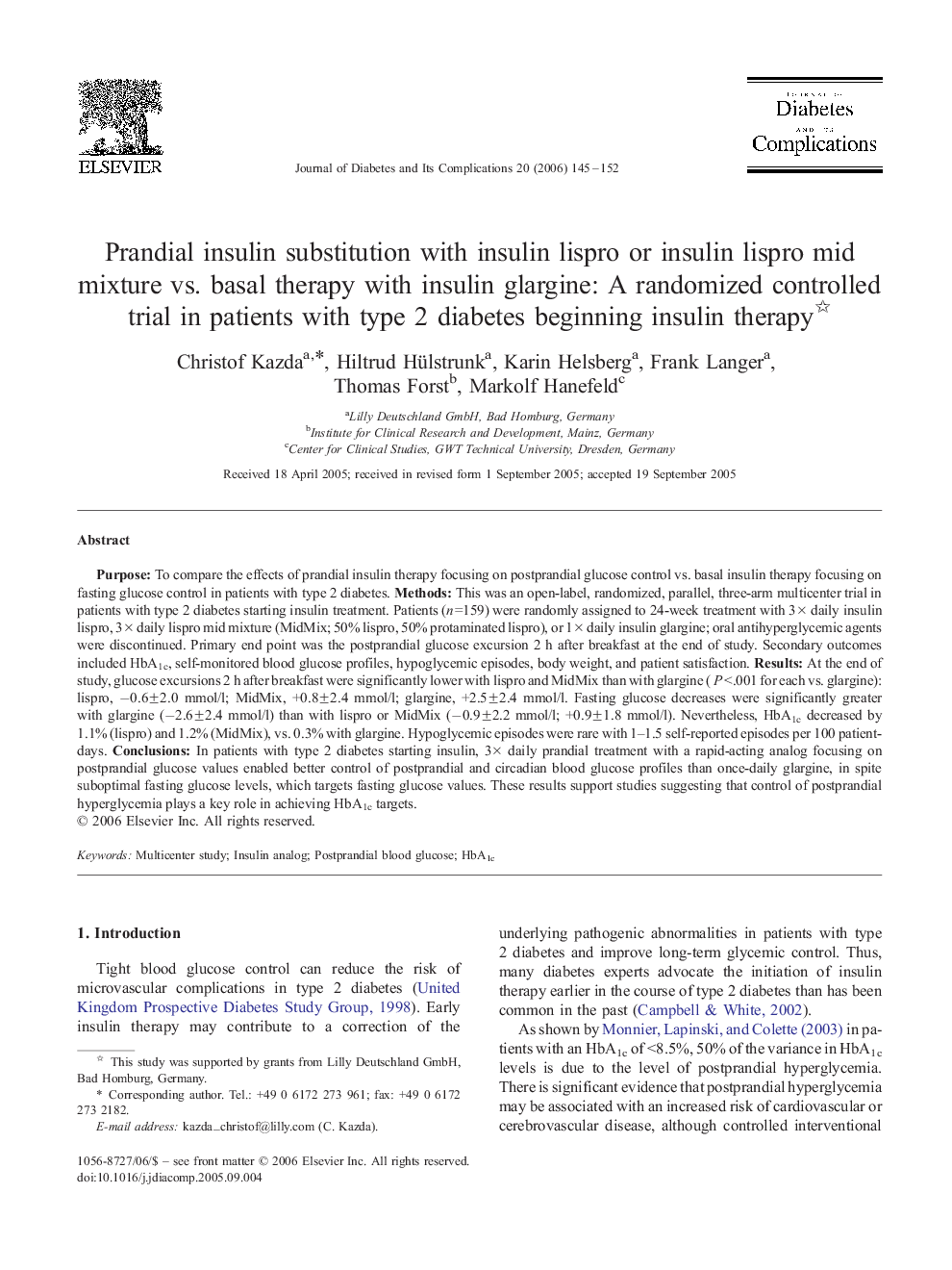| Article ID | Journal | Published Year | Pages | File Type |
|---|---|---|---|---|
| 2804835 | Journal of Diabetes and its Complications | 2006 | 8 Pages |
PurposeTo compare the effects of prandial insulin therapy focusing on postprandial glucose control vs. basal insulin therapy focusing on fasting glucose control in patients with type 2 diabetes.MethodsThis was an open-label, randomized, parallel, three-arm multicenter trial in patients with type 2 diabetes starting insulin treatment. Patients (n=159) were randomly assigned to 24-week treatment with 3× daily insulin lispro, 3× daily lispro mid mixture (MidMix; 50% lispro, 50% protaminated lispro), or 1× daily insulin glargine; oral antihyperglycemic agents were discontinued. Primary end point was the postprandial glucose excursion 2 h after breakfast at the end of study. Secondary outcomes included HbA1c, self-monitored blood glucose profiles, hypoglycemic episodes, body weight, and patient satisfaction.ResultsAt the end of study, glucose excursions 2 h after breakfast were significantly lower with lispro and MidMix than with glargine (P<.001 for each vs. glargine): lispro, −0.6±2.0 mmol/l; MidMix, +0.8±2.4 mmol/l; glargine, +2.5±2.4 mmol/l. Fasting glucose decreases were significantly greater with glargine (−2.6±2.4 mmol/l) than with lispro or MidMix (−0.9±2.2 mmol/l; +0.9±1.8 mmol/l). Nevertheless, HbA1c decreased by 1.1% (lispro) and 1.2% (MidMix), vs. 0.3% with glargine. Hypoglycemic episodes were rare with 1–1.5 self-reported episodes per 100 patient-days.ConclusionsIn patients with type 2 diabetes starting insulin, 3× daily prandial treatment with a rapid-acting analog focusing on postprandial glucose values enabled better control of postprandial and circadian blood glucose profiles than once-daily glargine, in spite suboptimal fasting glucose levels, which targets fasting glucose values. These results support studies suggesting that control of postprandial hyperglycemia plays a key role in achieving HbA1c targets.
